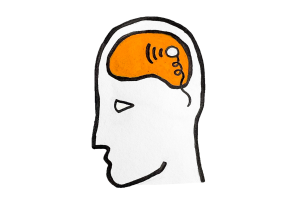This Day in History: Week of March 21 to March 28
March 21, 2023
March 21, 1806: Benito Pablo Juárez García, the 26th President of Mexico, was born.
Juarez was born in Oaxaca on March 21, 1806. He was the first Indigenous president of Mexico from 1861 to 1872. During this time, Napoleon III set out to conquer Mexico and put Maximilian of Austria as head of government. Juárez led the Mexican resistance movement, and Napoleon retreated in 1867. Maximilian was executed by the Mexican forces afterward. García was reelected to the presidency twice but faced much opposition from political rivals and was burdened by Mexico’s financial hardships and tense foreign relations. His presidency ended with his death in Mexico City on July 18, 1872. For his service against France, he is considered a national hero.
March 22, 1873: The Spanish National Assembly abolished slavery in Puerto Rico.
While other Latin American territories were in the process of gaining independence from Spain and building their societies, Puerto Rico was still under Spanish control in 1873. The new law was a result of a growing anti-slavery movement in Spain and freed nearly 30,000 enslaved people — five percent of Puerto Rico’s population at the time. Newly freed persons remained the lowest class in the social hierarchy, and per the law, they still had to work on their owner’s land for three years without gaining any political rights until five years after their emancipation. Further, slave owners received generous payments as compensation for the loss of their “property.” The last territory in the Americas to abolish slavery was Brazil in 1888.
March 23, 1971: 26th Amendment of the U.S. Constitution was passed by Congress.
Passed by Congress on March 23, 1971, and ratified on July 1, 1971, the 26th Amendment lowered the voting age in the United States from 21 to 18 years old. The promotion of this amendment came from the Second World War, the Korean War and the Vietnam War. A popular sentiment was that if Americans were old enough to die in a war, they were old enough to vote. It was promoted by President Richard Nixon ahead of the 1972 presidential election.
March 24, 1199: Legendary King Richard I the Lionheart was fatally wounded.
Perhaps best known today as the king featured in the tales of Robin Hood, King Richard I of England reigned from 1189 to 1199. He left the rule of England to others while he set out to join the crusades in the Holy Land, modern-day Palestine and Israel, in an attempt to recover the Kingdom of Jerusalem from Saladin, Sultan of Egypt and Syria, who had captured the city in 1187. While his army did defeat Saladin’s in the Battle of Arsuf, he never managed to take Jerusalem and eventually returned to England. He spent his last years in France in open war with Philip II, the first king of France. He was fatally wounded by a crossbow in France while in battle and died April 6, 1199, at age 41 after the injury became gangrenous.
March 25, 1655: Astronomer Christiaan Huygens discovered Titan, Saturn’s largest moon.
Christiaan Huygens was a Dutch mathematician, astronomer and inventor of the pendulum clock. Titan was the first discovered moon of Saturn and the sixth moon to be discovered, following Earth’s moon and the Galilean moons of Jupiter. Titan is the only known moon in the solar system to have a substantial atmosphere and liquid on its surface in the form of rivers, lakes and seas of methane and ethane sustained by rain. Beneath its surface, Titan has an ocean of water, suggesting the possibility of life.
March 26, 1827: German composer Ludwig van Beethoven died.
Born December 17, 1770, to a family of musicians, Beethoven is often considered the greatest composer of all time, best known for “Piano Sonata No. 14” — also known as the Moonlight Sonata — and his nine symphonies. He worked during a period of musical transition, as styles changed from Classical to Baroque, accompanied by the introduction of Romantic music. He dealt with growing hearing loss most of his adult life and was completely deaf during the last ten years of his life, during which he composed his “Symphony No. 9,” containing the famous “Ode to Joy” hymn. His revolutionary work was the first to include voices in a symphony, which were traditionally orchestral-only pieces.
March 27, 1513: Spanish Explorer Juan Ponce de León first spotted the Florida Peninsula.
Juan Ponce de León was born into Spanish nobility around 1460. He was the first Spaniard to settle Puerto Rico and was its first governor, founding the settlement Caparra, now called San Juan. While on a quest to find the Fountain of Youth on the island Bimini, which he supposedly heard about from the Indigenous people of the Caribbean, his expedition took him to mainland North America. He first believed he had sighted an island, which he named “La Florida.” However, they did not go ashore until April 2 of that same year. Ponce de León would go on to be fatally wounded in a skirmish against a Native tribe when he returned to Florida to colonize their territory.
March 28, 1913: Japanese artist Toko Shinoda was born.
Born in Manchuria to a Japanese family and raised in Gifu, Japan, Toko Shinoda acquired a passion for art when she was very young. She started studying calligraphy at age six and made a living as an acclaimed calligrapher in the early stages of her career. After the second world war, she gained international popularity and managed to travel to New York City, where she connected with artists of the Abstract Expressionism movement. When she returned to Japan, she began to blend traditional calligraphy with Expressionism. Shinoda went on to become a beloved and renowned artist, with her work being displayed in galleries and museums worldwide. She died on March 1, 2021, at age 107.








